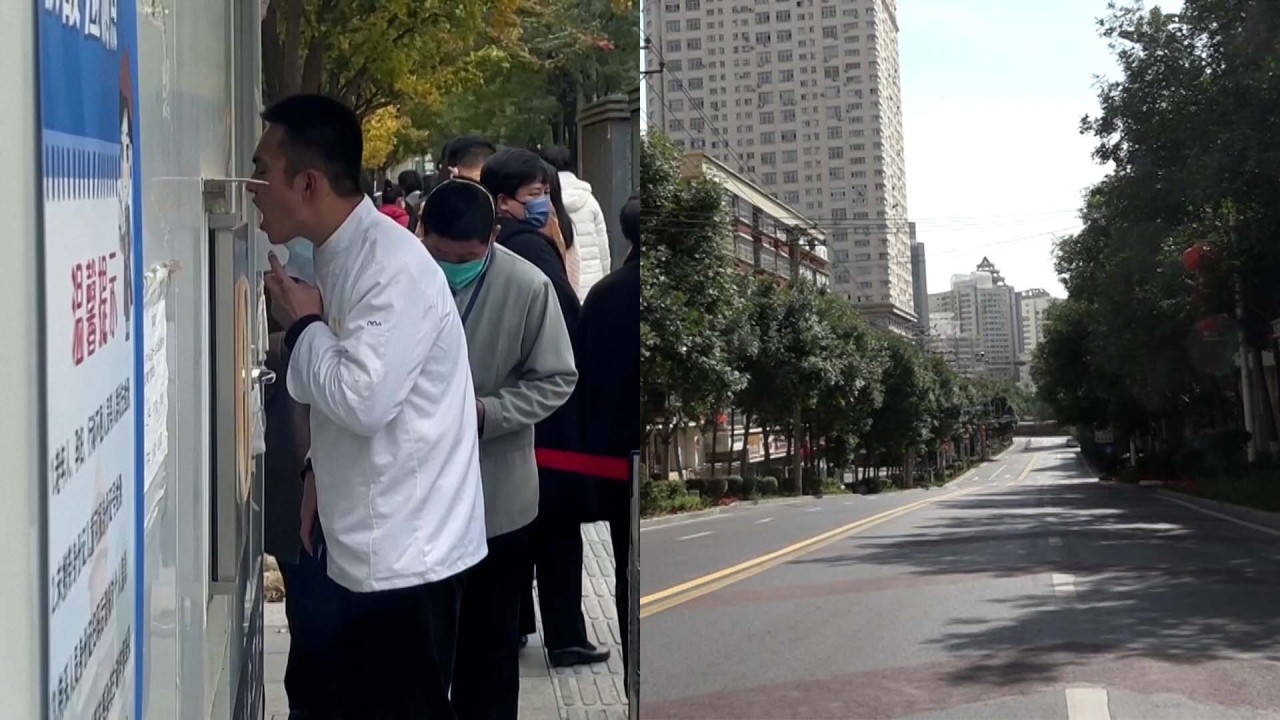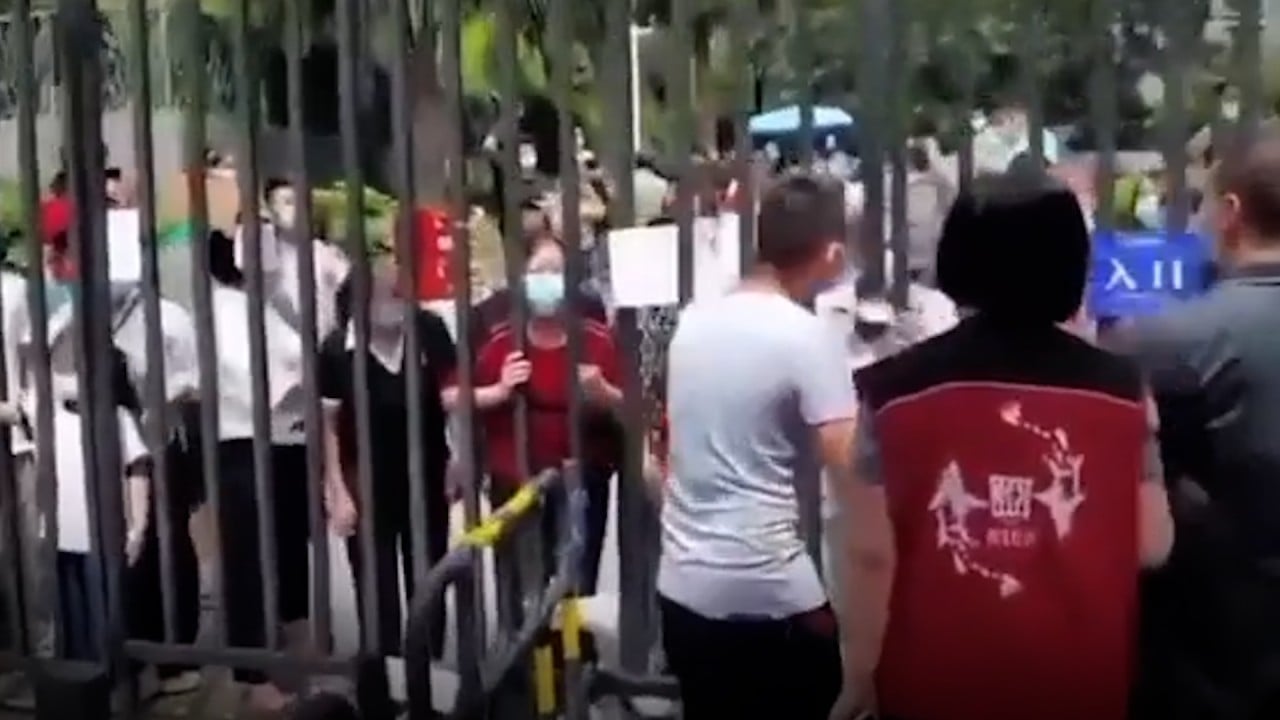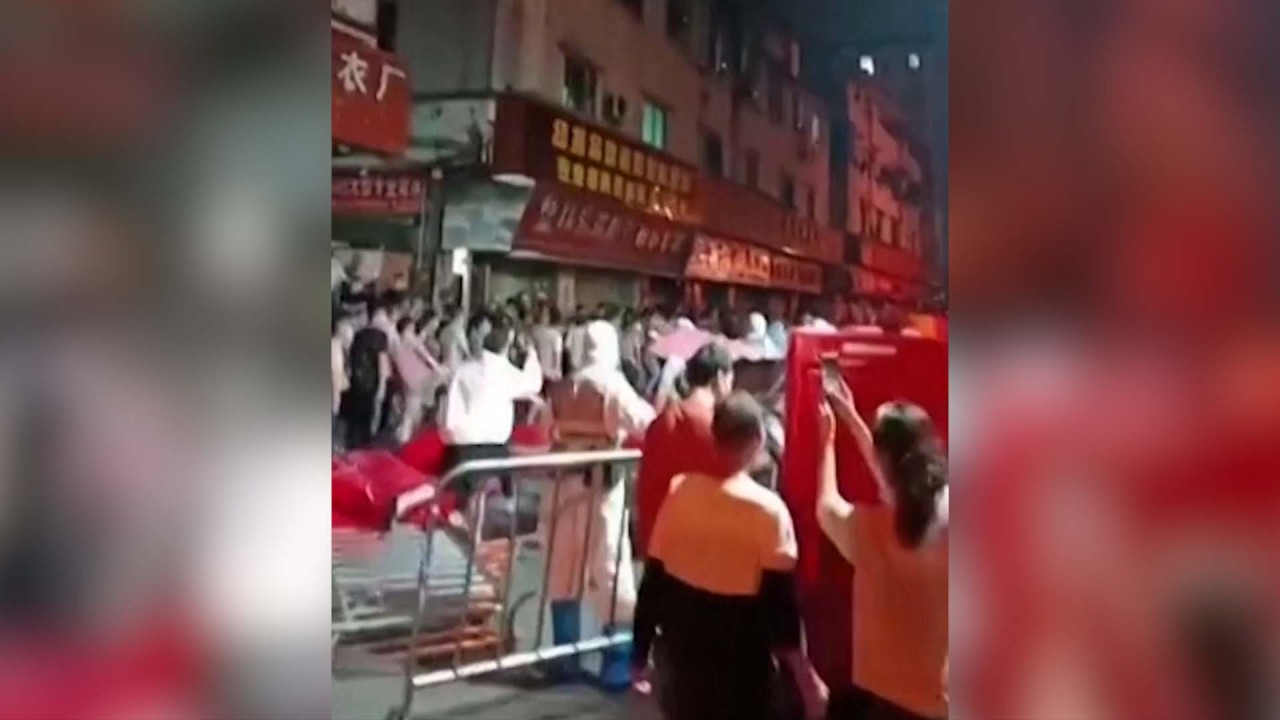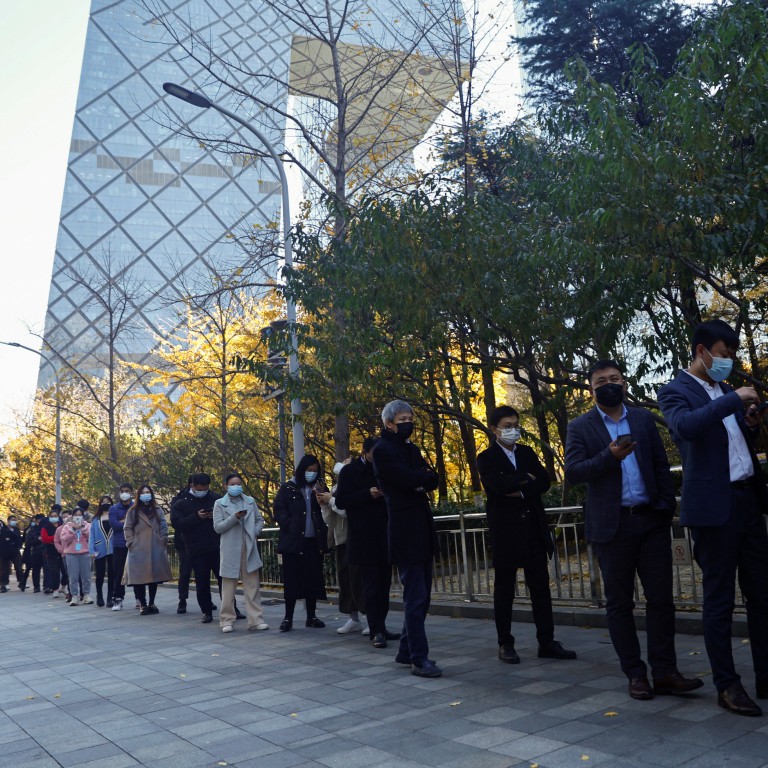
Coronavirus: Chinese cities tell residents to stay home as Covid-19 cases spike after rules relaxed
- Some blocks in Beijing’s Chaoyang district are under lockdown, while hardest-hit Guangzhou continues mass tests to beat fierce outbreak
- China’s top leadership has urged a more ‘targeted and precise’ approach to the zero-Covid policy but local governments must also keep case numbers down
China, which is battling its strongest Covid-19 wave in six months, reported 24,263 cases on Saturday, more than a third of those in the southern manufacturing hub of Guangzhou.
No calm for Guangzhou residents in the eye of China’s Covid-19 storm
Residents had been urged not to leave the Chaoyang unless necessary and to remain at home over the weekend, district deputy head Yang Beibei said on Friday.
“Occasional ‘staying at home’ is to cut off the transmission chain … as soon as possible, curb the spread of the epidemic, and protect public safety and health,” Yang said.
Some areas in Chaoyang have banned dine-in services, shut down public venues, suspended gatherings, and made negative test results mandatory for leaving the district between Friday and Sunday, according to a government notice.
District authorities have also advised residents to only commute between their home and workplace, if remote work was not possible.
Joseph Li is among Chaoyang residents who will be working from home.
Another Chaoyang resident, who only wanted to be identified as “Yan”, said her block had been under lockdown since Friday after a positive case turned it into a high-risk zone.
Photos she shared with the South China Morning Post appeared to show the entrance to the block sealed with a large metal sheet, and the latch to her front door secured with something like a metal zip-tie.
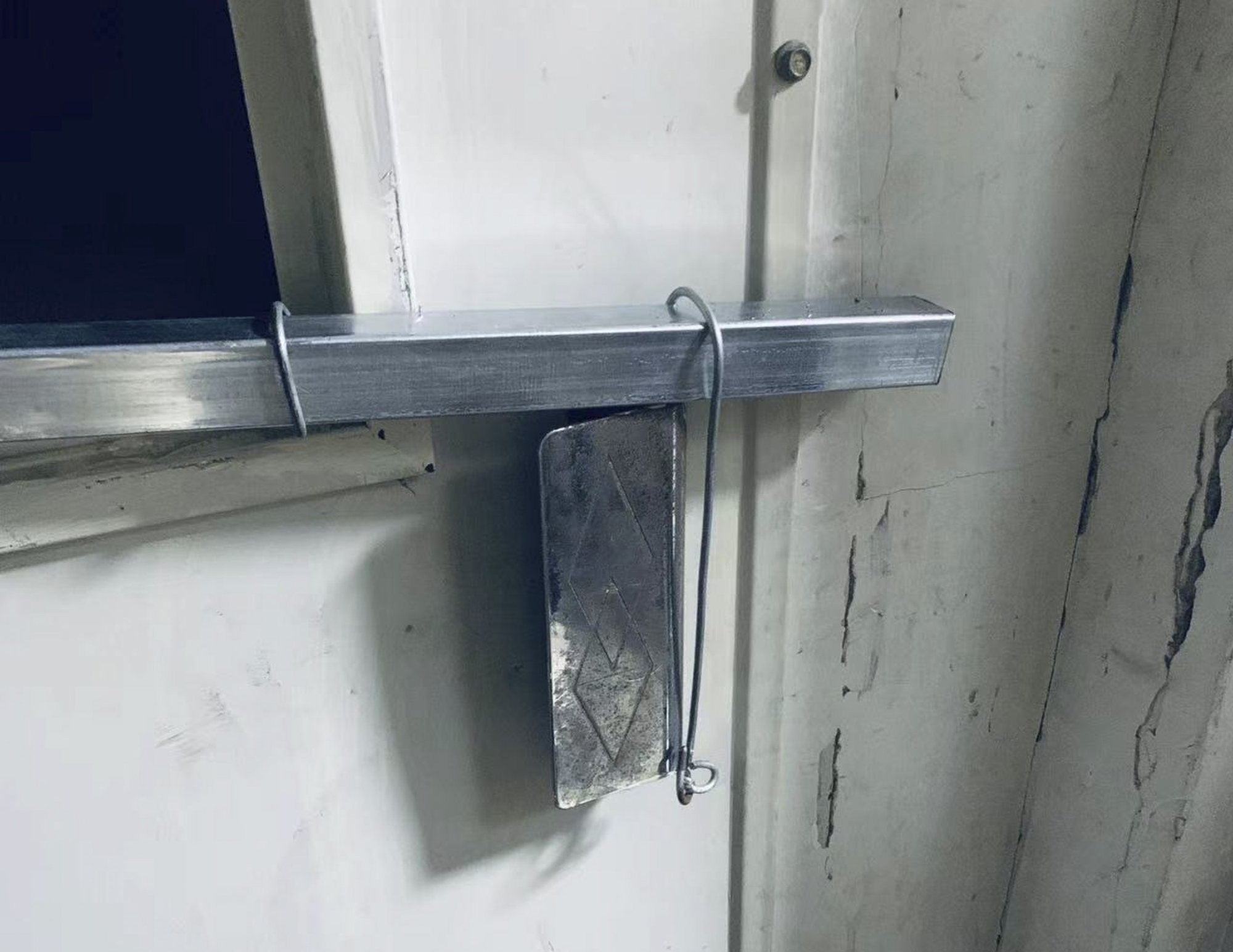
“The lockdown with home quarantine is estimated to last for five days from November 18. If all persons and the environment test negative during this period, [we will] immediately kick off the opening up procedure,” a notice from the estate management company in charge of Yan’s residential compound said.
However, the final decision was up to the government’s disease control bureau, it added.
Since Friday evening, Yan had called the community committee, Beijing police, fire stations and complaint hotlines multiple times, but to no avail.
The community centre first said they were investigating but later told residents the barriers would not be removed as they were a part of routine controls.
“[The metal sheet] has not been removed, and no one else has contacted me,” Yan said on Saturday afternoon.
Coronavirus: how Chinese are coping with zero-Covid panic and confusion
The three-tier area risk classification system has been simplified to just two – high or low. Also, local authorities can only designate specific flats or blocks as high-risk, not wider areas.
High-risk areas now need to show five consecutive days of no new infections to be reclassified as low-risk, a downgrade that could have earlier taken weeks in some cities.
But local governments are also required to keep infection numbers down, prompting many to tighten social distancing measures as cases flare. They are, however, now adjusting the rules district by district, rather than order citywide lockdowns.
Put lives first: Erdos ‘draws lessons’ on zero-Covid after 3-year-old dies
Districts should weigh the risk of community transmission, and still carry out mass testing until all positive cases within the quarantined population are identified, Shen added.
Residents of Jinan, capital of eastern Shandong province, were also asked to stay at home for the weekend as the caseload rose to 123 to Saturday, with more areas designated as high-risk.
Meanwhile in Guangzhou, large areas remain under lockdown as the densely populated Guangdong provincial capital tries to contain a Covid-19 wave that saw 8,714 cases logged on Saturday.
Many districts are carrying out mass tests, including Tianhe, despite only reporting four cases so far.


